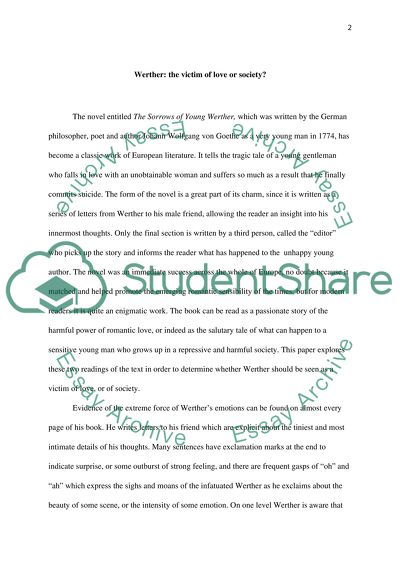Cite this document
(“The Victim of Love or Society Essay Example | Topics and Well Written Essays - 1500 words”, n.d.)
Retrieved from https://studentshare.org/literature/1434748-the-victim-of-love-or-society-
Retrieved from https://studentshare.org/literature/1434748-the-victim-of-love-or-society-
(The Victim of Love or Society Essay Example | Topics and Well Written Essays - 1500 Words)
https://studentshare.org/literature/1434748-the-victim-of-love-or-society-.
https://studentshare.org/literature/1434748-the-victim-of-love-or-society-.
“The Victim of Love or Society Essay Example | Topics and Well Written Essays - 1500 Words”, n.d. https://studentshare.org/literature/1434748-the-victim-of-love-or-society-.


